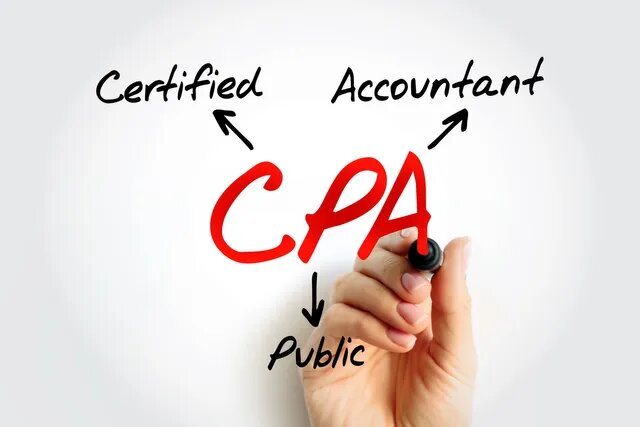

Table of Contents
The role of a Certified Public Accountant (CPA) is crucial in steering businesses towards financial success. As we step into 2024, the financial landscape continues to evolve, presenting both challenges and opportunities. To navigate this complex terrain effectively, CPAs must adopt strategic approaches that align with the latest trends and best practices. This comprehensive guide reveals the top CPA strategies for achieving financial success in 2024.

Understanding the Current Financial Landscape (CPA)
In 2024, the financial environment is characterized by rapid technological advancements, regulatory changes, and shifting economic conditions. These factors necessitate a proactive approach to financial management.
Embracing Technological Innovations
Technological advancements are reshaping the financial sector. CPAs must leverage these innovations to enhance efficiency and accuracy in their operations. Artificial Intelligence (AI) and Machine Learning (ML) are particularly influential, offering advanced data analytics and predictive insights. By integrating AI and ML into their workflows, CPAs can automate routine tasks, reduce errors, and focus on strategic decision-making.
Adapting to Regulatory Changes
Regulatory frameworks are constantly evolving, and staying compliant is a top priority for CPAs. In 2024, significant updates in tax laws and financial reporting standards are anticipated. CPAs should stay informed about these changes and adjust their strategies accordingly. This involves continuous education and engagement with regulatory bodies to ensure compliance and avoid penalties.

Effective Financial Planning and Analysis
Strategic financial planning and analysis are fundamental to achieving long-term success. CPAs play a pivotal role in guiding businesses through this process.
Developing Robust Financial Models
Financial modeling is a critical tool for forecasting future performance and making informed decisions. CPAs should develop comprehensive financial models that incorporate various scenarios and sensitivities. This enables businesses to anticipate potential challenges and opportunities, ensuring they are well-prepared for any eventuality.
Implementing Cost Management Strategies
Cost management is essential for maintaining profitability. CPAs should conduct thorough cost analyses to identify areas where expenses can be reduced without compromising quality. This includes negotiating better terms with suppliers, optimizing resource allocation, and eliminating waste.

Enhancing Financial Reporting and Transparency
Transparent financial reporting builds trust with stakeholders and enhances the credibility of an organization.
Utilizing Advanced Reporting Tools
Advanced reporting tools facilitate accurate and timely financial reporting. CPAs should adopt software solutions that offer real-time data visualization and customizable reporting formats. This allows for more effective communication of financial performance to stakeholders.
Ensuring Compliance with Reporting Standards
Adhering to established financial reporting standards is crucial. CPA must ensure that their reports comply with Generally Accepted Accounting Principles (GAAP) or International Financial Reporting Standards (IFRS), as applicable. This not only ensures accuracy but also boosts investor confidence.
Tax Optimization Strategies
Effective tax planning can significantly impact a company’s financial health. CP.AS should employ strategies that minimize tax liabilities while ensuring compliance with tax laws.

Leveraging Tax Credits and Deductions
Identifying and utilizing available tax credits and deductions can result in substantial savings. CPAs should stay updated on the latest tax incentives and advise their clients on how to take full advantage of them. This includes exploring research and development (R&D) credits, energy efficiency incentives, and other industry-specific benefits.
Strategic Tax Deferral Techniques
Deferring taxes can improve cash flow and provide financial flexibility. CP.As can advise on strategies such as income deferral, accelerated depreciation, and retirement plan contributions to defer tax liabilities and optimize financial outcomes.
Risk Management and Mitigation
Identifying and mitigating financial risks is a core responsibility of CPAs. In 2024, a proactive risk management approach is more important than ever.

Conducting Comprehensive Risk Assessments
Regular risk assessments help identify potential threats to financial stability. CP.As should conduct thorough analyses of financial statements, market conditions, and operational processes to pinpoint vulnerabilities. This allows for the development of targeted risk mitigation strategies.
Implementing Internal Controls
Robust internal controls are essential for preventing fraud and ensuring financial integrity. CP.As should design and implement controls that safeguard assets, ensure accurate reporting, and promote operational efficiency. This includes segregation of duties, regular audits, and stringent access controls.
Fostering Strategic Business Partnerships
Building and maintaining strategic partnerships can drive growth and innovation. CPAs should play a key role in identifying and cultivating these relationships.

Collaborating with Financial Advisors
Working closely with financial advisors can enhance a company’s financial strategy. CPAs should foster strong relationships with advisors to provide comprehensive financial planning services. This collaboration can result in more holistic and effective financial solutions.
Engaging with Industry Experts
Engaging with industry experts and participating in professional networks can provide valuable insights and opportunities. CPAs should actively participate in industry conferences, seminars, and forums to stay abreast of the latest trends and best practices.
Conclusion
The path to financial success in 2024 requires CPAs to be strategic, proactive, and innovative. By embracing technological advancements, staying compliant with regulatory changes, and implementing effective financial planning and risk management strategies, CPAs can guide their clients towards sustained success. Fostering strategic partnerships and leveraging tax optimization techniques further enhance financial outcomes. As the financial landscape continues to evolve, the role of CPAs will be pivotal in navigating these changes and achieving financial excellence.
READ MORE HERE



